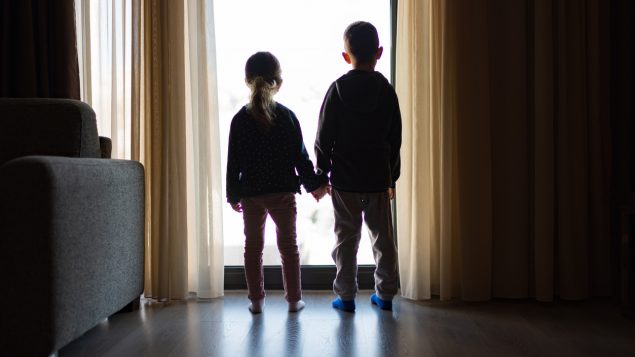Pandemic stay-at-home policies have affected at least one in seven children (332 million) around the world, says UNICEF, putting their mental health and well-being at risk. The figures derive from a new analysis by UNICEF of data from the Oxford COVID-19 Government Response Tracker. The UN’s children’s agency is urging Canada and other countries to make greater investments in mental health services.
A UNICEF online survey (U-Report) of its stable of about 800 young Canadian respondents found that 69 per cent of them felt the pandemic is having a negative or very negative impact on their mental health.

Lock-downs have left many children indoors without the support of teachers, family and communities. (iStock)
Canada already had a high number of unhappy children, says UNICEF
Even before the pandemic, UNICEF found that a striking number of children in Canada are unhappy. It’s global Report Card 16 ranked Canada 31 out of 38 wealthy nations in terms of mental health and happiness. Almost a quarter of children in Canada reported low life satisfaction and Canada has one of the highest rates of adolescent suicide. For the children who experience violence, neglect or abuse at home, UNICEF notes that lockdowns have left many stranded without the support of teachers, relatives and communities. Sixteen per cent of U-Reporters said they were at least somewhat or extremely concerned about violence in the home.
Globally, before the pandemic began, UNICEF reports that half of all mental disorders developed before the age of 15 and the majority of the 800,000 people who died by suicide yearly were young people.
Mental health services widely disrupted worldwide
The World Health Organization has said that the pandemic has disrupted or halted critical mental health services in 93 per cent of countries. UNICEF says it is supporting governments and partner organizations to prioritize and adapt services for children.
“If we did not fully appreciate the urgency prior to the COVID-19 pandemic – surely we do now,” said Henrietta Fore, UNICEF Executive Director. “Countries must dramatically invest in expanded mental health services and support for young people and their caregivers in communities and schools. We also need scaled-up parenting programs to ensure that children from vulnerable families get the support and protection they need at home.”







For reasons beyond our control, and for an undetermined period of time, our comment section is now closed. However, our social networks remain open to your contributions.